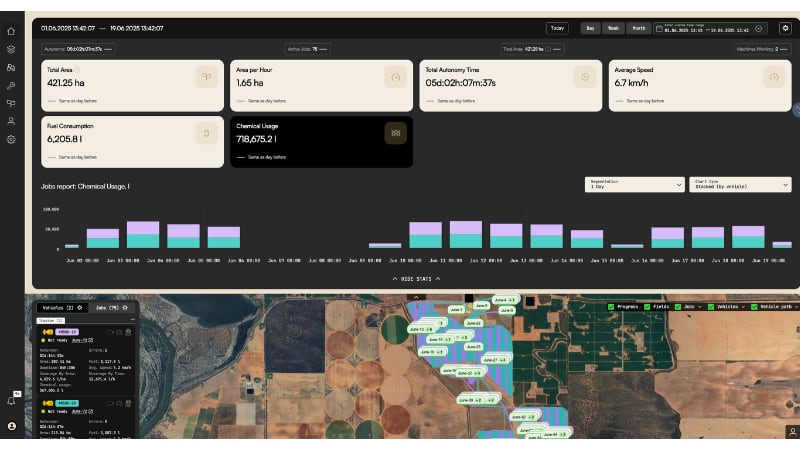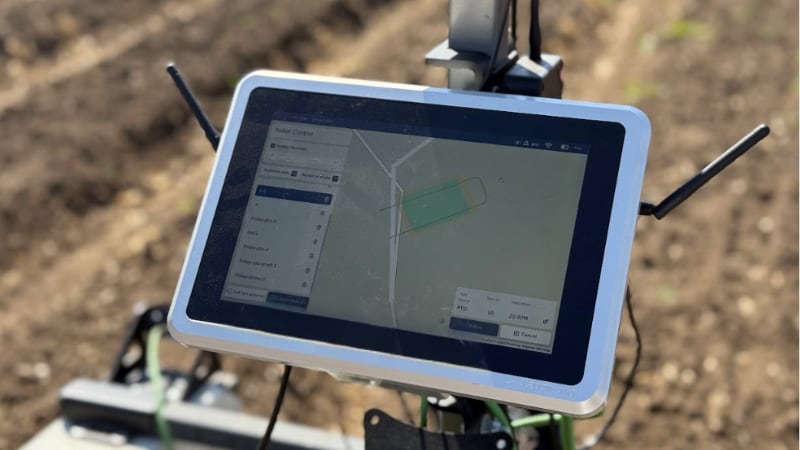San Jose-based Bonsai Robotics launched its Teletrace software to autonomize a suite of ag machines for specialty crop operations through its Topcon CL-55 telemetry device, six months after the start-up raised $15 million in a Series A round.
The Topcon CL-55 is a telemetry device that plugs into a machine’s controller area network (CAN) bus, the machine’s communications system. The telemetry device stores the data locally when navigating up and down rows and then transfers field data in batches via Starlink or other internet services, Tyler Niday, CEO and co-founder of Bonsai, told AgTechNavigator.
This device connects the tractor to Topcon’s CloudLink service, which allows growers to monitor various metrics like chemical applications, fuel efficiency and any obstructions like tumbleweeds that robots come across through a cloud-based portal, Niday explained.
“When harvest comes around, we can track key features and metrics of the performance, like the number of trees you shook in an almond field, or the speed you are sweeping. ... So, you get a lot of insightful data around your operations,” he elaborated.
Providing automation to a fleet of different vehicles
Specialty crops like almonds require a suite of vehicles that often cannot be purchased from a single equipment manufacturer, Niday noted. “In the specialty crop space, it is much more of a rainbow fleet than all green, like John Deere,” he added.
Basic telemetry tracking, including data on machine location and times a machine is used, comes standard on most machines, Niday said. However, specialty machines, like a tree shaker, will have proprietary CAN bus software, requiring Bonsai to partner with various machine makers to access these systems, Niday explained.
Bonsai Series A round fuels growth
Following roughly six-and-a-half years at Blue River Technology — acquired by John Deere in 2017 for $305 million — Niday launched Bonsai in 2022 with the long-term goal of creating solutions for managing machines, regardless of brand, range or autonomy, through a single platform.
Currently, Bonsai technology is deployed in almond, citrus and pistachio farms in California and Australia, where they spray, disk, move, shake and sweep fields.
“We realized that there was not a precision ag revolution in open fields — in the high-value crop space. ... We found that if we could figure out how to work without GPS and function like a human does based on AI-based features and run off a vision system that can work in dust, there is a huge opportunity,” Niday elaborated.
Bonsai closed its Series A round earlier this year, in a round led by Bison Ventures with participation from Cibus Capital, Acre Venture Partners, Congruent Ventures, Fall Line Capital and Serra Ventures. Initially, Bonsai was not planning to raise until later this year, but the company found an opening to secure funding to fuel its growth strategy, Niday noted.
“Those funds are really centered around our expansion. We are going pretty heavy in Australia. We have about 50 machines deployed in Australia,” Niday added.




